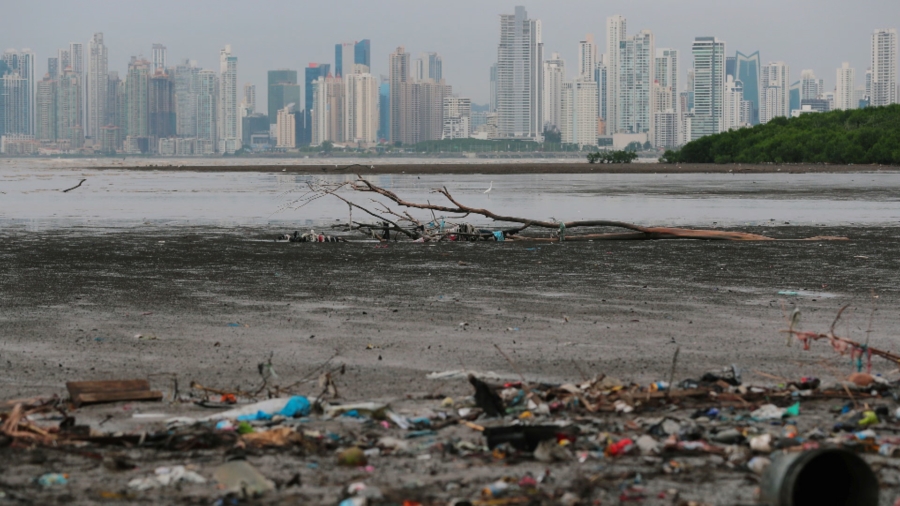PANAMA CITY—Panama on Saturday became the first Central American nation to ban single-use plastic bags to try to curb pollution on its beaches and help tackle what the United Nations has identified as one of the world’s biggest environmental challenges.
The isthmus nation of roughly 4 million people joined more than 60 other countries that have totally or partially banned single-use plastic bags, or introduced taxes to dissuade their use, including Chile and Colombia in the region.
Supermarkets, pharmacies and retailers in Panama must stop using traditional polyethylene plastic bags immediately, while wholesale stores will have until 2020 to conform to the policy approved in 2018. Fines can be applied for non-compliance but there are exceptions for the use of plastic bags for sanitary reasons, such as with raw food.

On the streets of Panama City, signs with the phrase “less bags, more life” reminded passersby that the measure had gone into effect.
“This seems like a good measure because you avoid continuing to pollute the streets and the community,” said Victoria Gomez, a 42-year-old secretary in downtown Panama City.
Birds, turtles, seals, whales and fish often become entangled or ingest the remnants of plastic bags in Latin America, one of the most biodiverse regions in the world. Along Panama’s coast, it is common to see plastic waste littering beaches, especially near populated areas.

Given projected growth in consumption, without new anti-pollution policies oceans are expected by 2050 to contain more plastics than fish by weight, according to the New Plastics Economy report published by Ellen MacArthur Foundation in 2016. The report also found that the entire plastics industry will consume 20% of total oil production by then.
Single-Use Plastic Bags Banned in Victoria
In Victoria, Australia, the state government introduced a bill in parliament on June 19 to ban the bags from retail outlets including supermarkets, fashion boutiques, fast-food outlets, convenience stores, and service stations from November.
“Victorians use more than a billion of these bags each and every year; more than 10 million of these end up as litter in our environment,” Environment Minister Lily D’Ambrosio told reporters.

“We know that that’s not good enough.”
D’Ambrosio said a number of retailers had in fact already implemented alternatives for consumers.
The ban follows community consultation and was flagged by the government in June last year.
Bags used for fruit, vegetables, and meat as well as thicker garbage bags will be exempt and customers will still be able to buy heavier plastic bags.
An education campaign will run to help Victorians understand the laws and alternatives.

The bill must have crossbench support in the upper house to pass.
Opposition Leader Michael O’Brien says he wants to see a cost-benefit analysis of the laws.
“It’s fine to say get rid of plastic but what are you going to replace it with? he said.
“People need to have alternatives.”
By Elida Moreno and Kaitlyn Offer
AAP contributed to this report.

